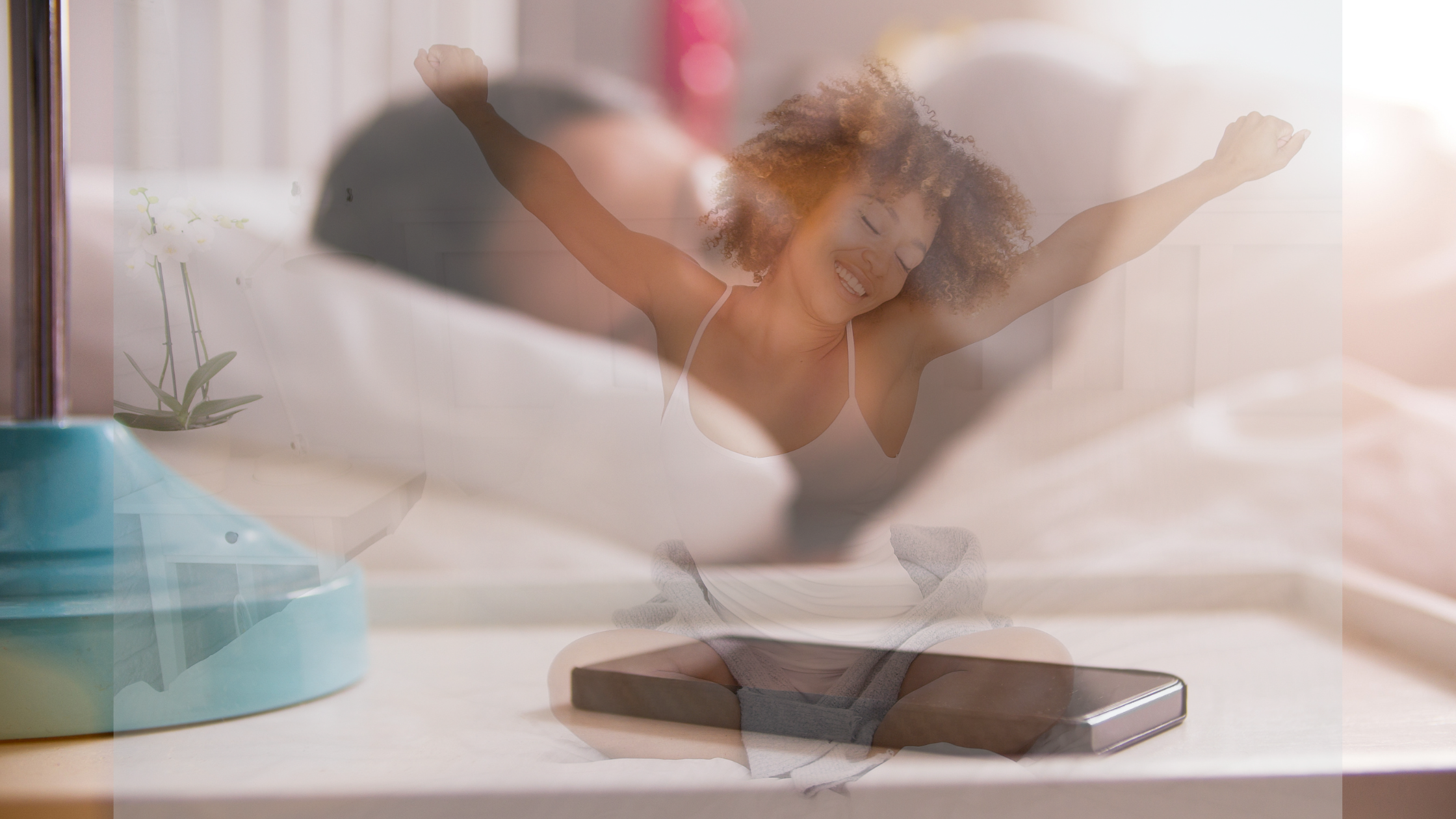
Have you ever heard your alarm go off, and got up and did your normal routine, just to realize it was all a dream? This is known as false awakening. They are one of several weird things that can happen during rapid eye movement (REM) stage of sleep.
Continue reading to find out why they occur, how they are related to other strange sleeping phenomenon, and when it's definitely time to talk to a physician.
What is False Awakening
During a false awakening, the sleeper believes that they are awake, but they are actually still sleeping. They normally occur during REM sleep, which is the stage mostly tied to dreaming. There is not much research on false awakening, but people still experience this phenomena.
Many dreamed activities that happen during false awakenings include waking up and getting ready for the day, waking up in the middle of the night and going to the bathroom or kitchen, wandering around, and thinking about a dream that you had just before the false awakening.
False awakenings differ from regular dreams because they are based on realistic activities. You normally will "wake up" in a realistic environment like the bedroom, work or school. It is often not until later in the dream, that you realize it's a dream and that you've probably overslept.
Imagery in these false awakenings if often similar to that of waking life. However, some false awakening dreams can be extremely vivid. Others may be vague, and dimly lit. Overall, the content from false awakenings can be more easily remembered than regular dreams.
Connections to other REM Sleep Phenomena
A survey in Russia found that those who experience false awakenings are more likely to also experience other REM-related sleep phenomena. REM phenomena include sleep paralysis, out-of-body experience, and lucid dreaming. Experiencing REM phenomena may also be linked to the ability to recall dreams.
False awakenings, sleep paralysis, and lucid dreams are all considered to arise from an intermediate state between REM and wakefulness. Researching false awakenings is difficult because of this relationship, and issues with catching it in between those two stages of sleep.
Sleep paralysis and false awakening goes hand in hand. Sleep paralysis is when you are mentally awake, but physically unable to move. This typically takes place during the REM sleep. Sleep paralysis can happen as you are falling asleep or waking up. This is similar to false awakenings where a person is mentally awake, but are still dreaming. Sleep paralysis is more common in those with poor sleep quality, insomnia symptoms or significant distress. Researchers propose that one way to treat sleep paralysis is to help individuals get control of their dreams.
False awakenings are similar to lucid dreams, and often accompany them. In lucid dreams, the sleeper remains asleep, but is also aware that they are in a dream. Those who lucid dream often, tend to have several more episodes of false awakening than those who do not lucid dream.
Researchers believe that because they happen together, they must represent the same mental state. People who use tricks to see if events are real, or if they dreamed them, are likely to enter a lucid dream after a false awakening. These tests are known as "reality checks", and are also a way to induce lucid dreams.
When to talk to a physician
False awakenings are not dangerous, but some people find them distressing. If false awakenings are severely impacting your life, or are accompanied by distressing thoughts and feelings, then it may be time to talk to your doctor for advice on how to sleep more soundly.
In order to improve your sleep, healthy sleep hygiene can improve sleep quality, which can reduce the number of false awakenings. These sleep hygiene tips include keeping a regular sleep and wake time; avoiding caffeine, nicotine and alcohol in the later afternoon and evening; sleeping in a dark, quiet, and cool environment; setting and adhering to a consistent bedtime routine; designating the bedroom as a screen-free zone.
If you are struggling with false awakening, and think it may be tied to another sleep disturbance, then please click the orange button to take a free online sleep test and talk with one of our sleep health experts.
https://www.sleepfoundation.org/dreams/false-awakening

